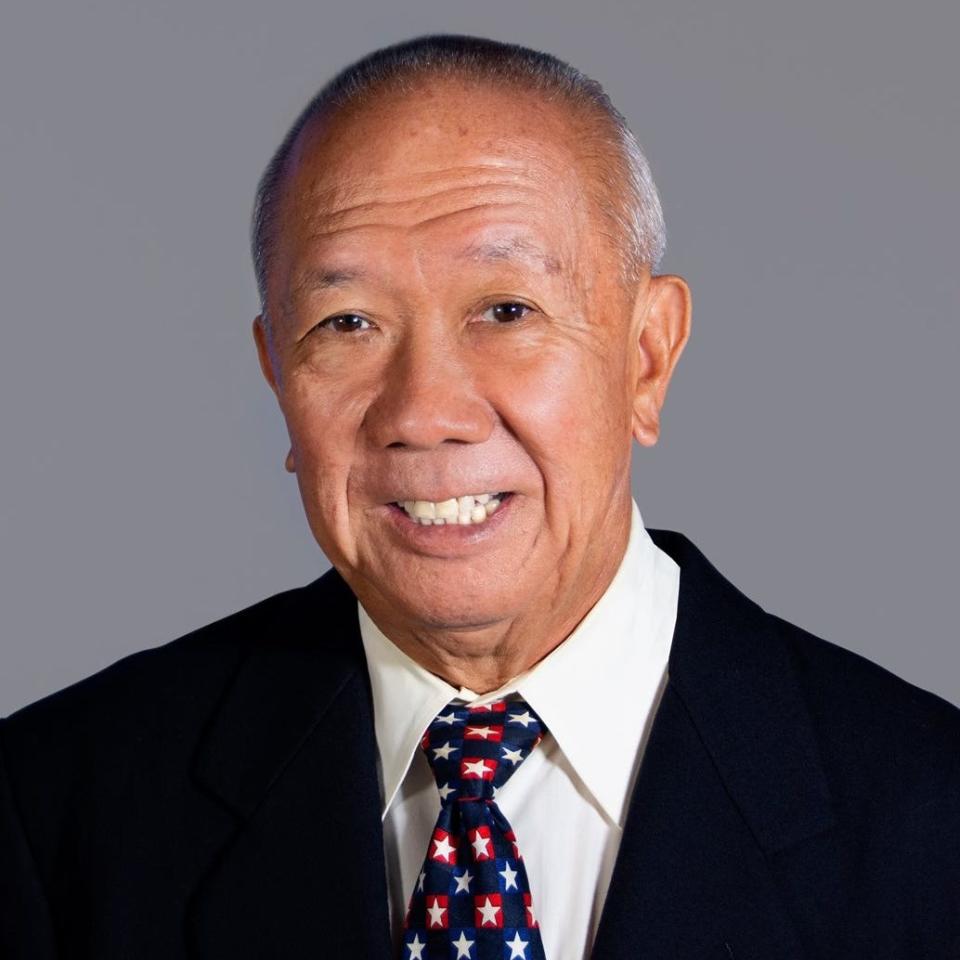'It's been wonderful,' Hawaii's Calvin Say to retire after 48 years in politics
Calvin Say, a veteran Honolulu City Council member, has been a well-known figure in the community for nearly half a century.
Known for his dedication to public service, personal touch with constituents, and historical contributions to local legislation, it was bittersweet for the public servant to announce the decision not to run for re-election in a recent interview with USA TODAY.
Citing health concerns as the reason for his departure, the 71-year-old expressed his desire to dedicate time to volunteer work once his term concludes in 2025.
“I can give people advice on the government, state process, city accounting process, these types of things. Who to contact. After these 48 years, I’ve been very fortunate to develop a lot of positive relationships with people,” Say remarked.

The Democratic lawmaker began his political journey in the state House of Representatives in 1976 and served as House Speaker from 1999 to 2012. Deeply connected to his community, he attended Saint Louis High School from 1967-1970 and earned a bachelor’s degree in education from the University of Hawaiʻi at Mānoa in 1974.
Known for his personal touch, he remembers many of his constituents by name, often recalling their faces from his community events or extensive door-to-door campaigning.
In his early career, Say supplemented his modest income by working part-time as a busboy at the Flamingo Chuckwagon in Honolulu, earning $2-3 per hour. “It’s hard to believe, but the salary was $12,000 a year, so the legislature prorated it at $1,000 a month, and most legislators had to have a part-time job,” Say said. “So, my part-time job was working at the restaurant from 1970 to 1990.
Since then, Say has been actively involved in most of Hawaii’s significant changes since it first became a state in 1959. The veteran politician touts his storied accomplishments from restoring the only royal palace in the United States to preserving the island Kaho’olawe, which the U.S. Navy had used to test weapons for decades.
More: Tulsi Gabbard has shed her old Democratic policy stances. Is it a push to serve with Donald Trump?
As he prepares to close this chapter of his life, he looks back on a lifetime of public service:
What was it like working as a busboy and a representative?
It wasn’t too bad. (I worked) Friday, Saturday, and Sunday evening. On Fridays, most of our colleagues on the neighbor islands would fly back home. And then, when the session was over, I worked the same days for the evening.
What’s instilled in me is the value of having nothing to be ashamed of. And so I say very humbly that public service is a noble profession.
How much has Hawaii changed since you first became a lawmaker in 1976?
I feel a little melancholy. I know I can’t preserve the past.
It has changed, I think, trying to assimilate into the global economy prior to the ’60s and ’70s. Hawaii was a diamond in the rough that nobody saw shine until the ’70s and ’80s, with the Japanese investments and other foreign entities.
What are the most significant victories from your political career?
I was very blessed and fortunate to address the return of Kaho’olawe (from the U.S. military) and to be a part of the historic preservation of Iolani Palace and some of the major Heiau (Hawaiian temples) throughout the state.
I would say to you, on a smaller scale, the implementation and the enactment of the culture and arts in our school programs. Then the other one that comes to mind was the opening of our tourism to Asia, Japan, Korea, Taiwan, Philippines, etc.
How would you describe your style as a politician?
Simply put, can we agree to disagree? That’s number one. Number two, I have the highest respect as far as your vote on a particular matter. Number three, it’s just issues at that point in time. You know, for me, I know how you vote, but if I could educate you in making a proper decision on a particular issue, that’s it. I was never afraid of having measures die on the floor of the house because that was democracy at its finest, where you had this lively discussion.
Can you share any lessons or advice for the next generation of politicians?
In Hawaii, we’re working together as a family, as a community, as a state. We’re all in the same boat, all paddling the canoe the same way, going forward and not backward. That’s how I see the legislature changing. (We can’t) follow the same optics on the national level, the extremes. Why can’t Democrats and Republicans work and collaborate together?
Jeremy Yurow is a politics reporting fellow based in Hawaii for the USA TODAY Network. You can reach him at JYurow@gannett.com or on X, formerly Twitter @JeremyYurow
This article originally appeared on Arizona Republic: Hawaii's Calvin Say to retire after nearly five decades in politics


